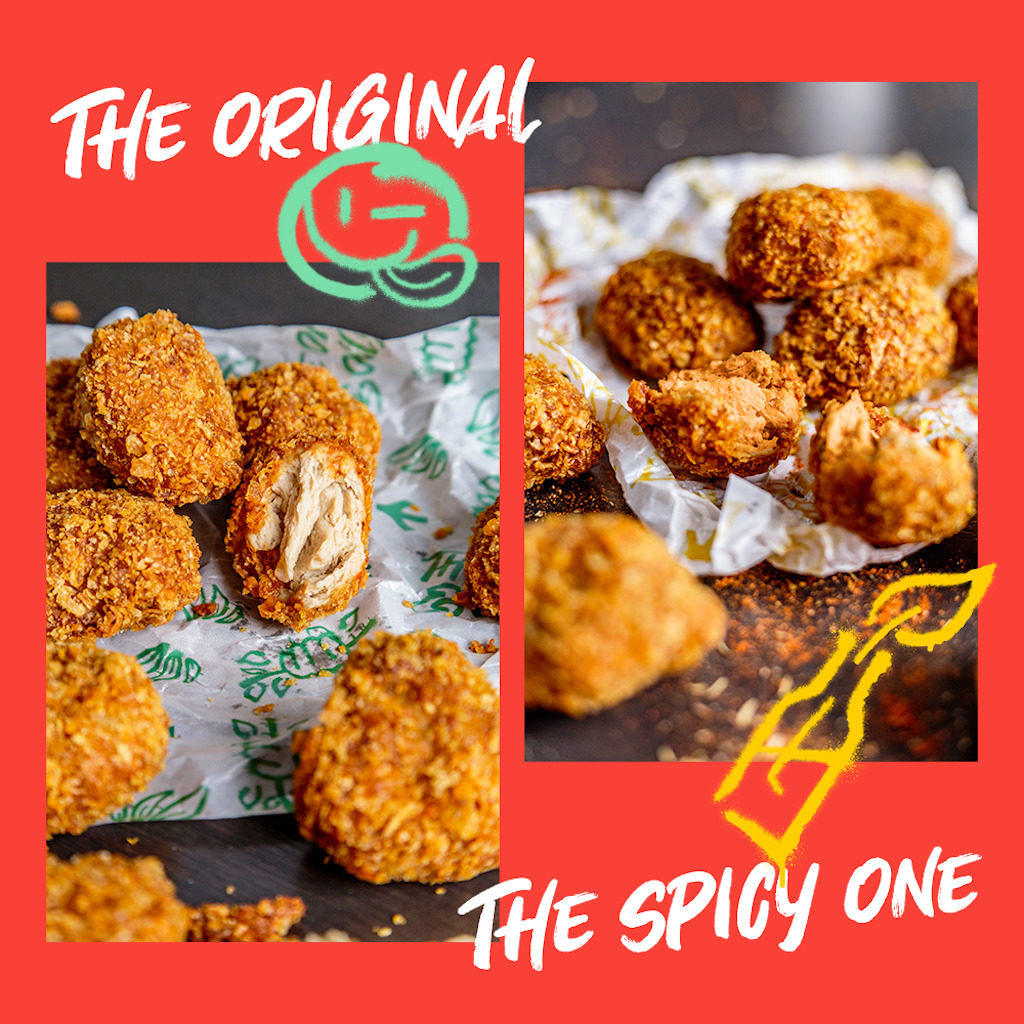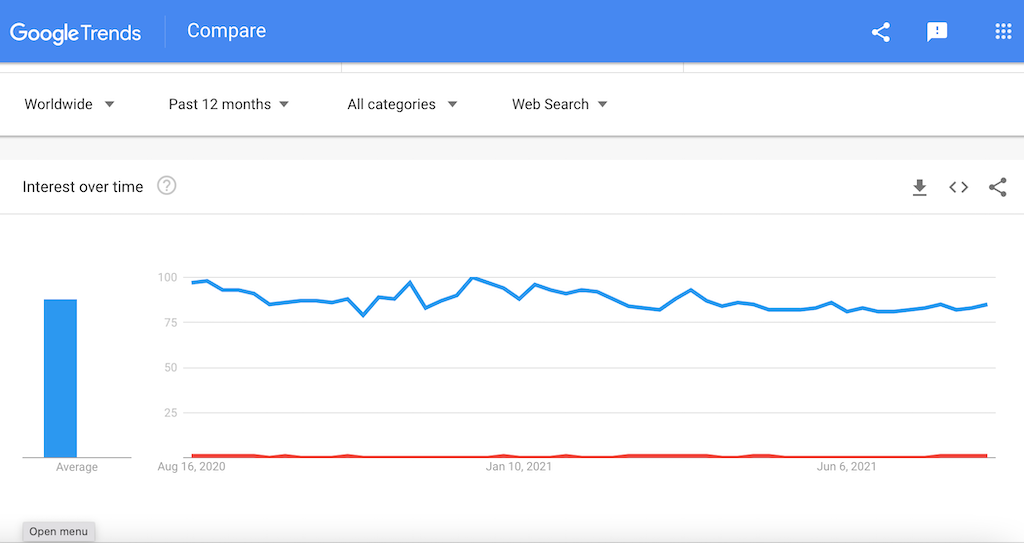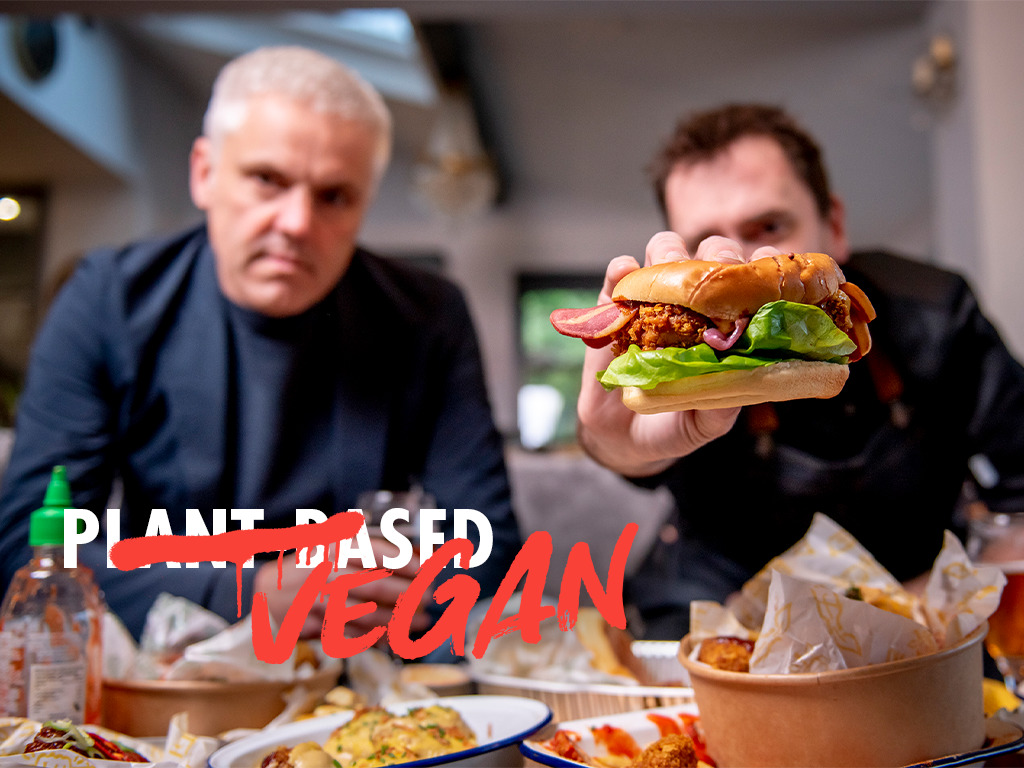5 Mins Read
VFC, the vegan chicken brand co-founded by Veganuary’s Matthew Glover and chef Adam Lyons, doesn’t ever use the term “plant-based”. This is in stark contrast to the marketing approach of many alt-protein brands across the globe, which have done the opposite and favoured “plant-based” while shunning the word “vegan”. We wanted to know more about the why of this brand decision. Below, Glover and the VFC team tell us more.
You might be wondering, how does a vegan food brand not use the term “plant-based”? It appears to be the preferred term plastered across the branding among some of the biggest food techs, from Oatly to Beyond Meat and Impossible Foods. Many proponents of the term “plant-based” say that the word “vegan” seems to deter mainstream consumers, who find it too extreme or non-inclusive.
Why then, has VFC decided to outright ban “plant-based”? Co-founder Matthew Glover jokingly tells us it’s partially because of the brand’s “attitude”. But it’s deeper than that. It’s actually a part of the whole company’s mission and values.
‘Vegan is a promise we made’
“We’re activists first and food producers second,” shares the co-founder. “‘Plant-based’ doesn’t cover how we feel or what we want to achieve as a company.”
And VFC is ultimately all about saving lives. It’s why the company places animals “front and centre” in its branding, as Glover and the team had previously explained to us.
“The word ‘vegan’ accurately reflects that promise we made to do all we can to rid the world of factory farms and spare the lives of birds,” says Glover.
Aside from selling delicious cruelty-free fried chick*n made from only plant ingredients, the company is firmly committed to advancing the interests of the very animals it is so focused on saving, posting educational facts and going undercover to investigate the horrors that birds endure in farms.
Responsibility to animals
For VFC, it’s not that “plant-based” is inaccurate. It’s just that veganism is more accurate in describing its mission and the responsibility it feels to save as many animals as possible. The former term is a way to express how their food is made, but it doesn’t go much deeper than that.
“Our food is 100% made from plants, yes,” says Glover. “And we would never wish to criticise anyone else for using this term. But we want to encourage people not just to consider eating plants for their health—after all, VFC is not a health food—but to choose delicious foods that contain no animals, and to understand that by doing so they are reducing the suffering in the world, and having a positive impact on the health of the planet.”
Indeed, a health focus is often cited as one of the reasons why other startups have taken to using the term “plant-based” instead. Amid the clean-label trend, many are focusing on the nutrition and whole-food aspect to convince more shoppers to choose their animal-free alternative.
But that’s simply not the reason why VFC was created—the brand’s name itself is a tongue-in-cheek wordplay of the fast-food giant from Kentucky, the land of everything fried. VFC simply wants to offer what consumers know and love about fried chicken, without the chicken—craveable food that doesn’t require sacrificing animal lives.

‘Vegan’ works with consumers
And Glover says that this animal welfare aspect is working with consumers. Not everyone is out there to ditch meat and dairy to be healthy. According to internal panel research conducted by the startup, the British public are surprisingly open to their vegan-forward messaging.
“We asked the general public how they felt about ‘Food that doesn’t cost a wing and a leg’ associated with our brand and 62% were positive, and 10% were neutral to what is an edgy animal rights message,” he explains. “For flexitarians and meat reducers a higher proportion of 70% of respondents were positive to the message.”
“The word vegan is cool, interesting and attractive. In the UK right now, you cannot walk down the street without seeing the word vegan. And that makes us very happy.”
This seems to be in line with global trends. Data pulled from Google Trends shows that the term “vegan” vastly outperforms “plant-based”. Trend experts from Deliveroo and Instacart who shared their insights at a recent VWS panel also noted that the term “vegan” was dominating searches on their platforms, far more than “meatless”, “meat-free”, “dairy-free” or “plant-based”.
“Part of it is because ‘vegan’ has been made so visible by Veganuary and groups like Million Dollar Vegan and magazines who have the word in their names, and also by the celebrities and influencers who are proud to describe themselves as vegan,” says Glover.
“It also denotes wider interests, encompassing animal rights, environment, food and health, while ‘plant-based’ is more restrictive, focusing only on diet and health.”

Breaking down the vegan stereotype
When asked about those who argue that the term “vegan” is aggressive or inherently exclusionary, Glover vehemently disagrees. “I think those who seek to oppose our social justice movement have attempted to demonise and toxify the word. We shouldn’t let them.”
He goes on to cite the long peaceful history of veganism, and how the entire crux of the movement is all about avoiding harm to all living sentient beings. That’s why Glover, in leading his venture with Lyons, has directed his team to “be proud of our language” and “not let those with vested interests take it from us.”
“In the UK, this has been our approach and now supermarkets have the word ‘vegan’ splashed all over their food products. We’d encourage others around the world to reclaim the word and be proud of it,” he continued.
For Glover, there’s a clear distinction between aggression and anger—and when it comes to the latter, he believes we all should be. “Animal agriculture is destroying our planet, heating up the climate, polluting the waterways, wiping out habitats and biodiversity, and killing billions of animals. We should be angry about that.”
“As they say, if you are not angry, you are not paying attention. But we are not aggressive, and we should not let others who oppose us define our movement.”
This article is part of special insight series in collaboration with vegan chick*n brand VFC in which we explore their unique and inspiring approach to building a cruelty-free food brand from scratch. Read the other articles in the series here.
Lead image courtesy of VFC.




